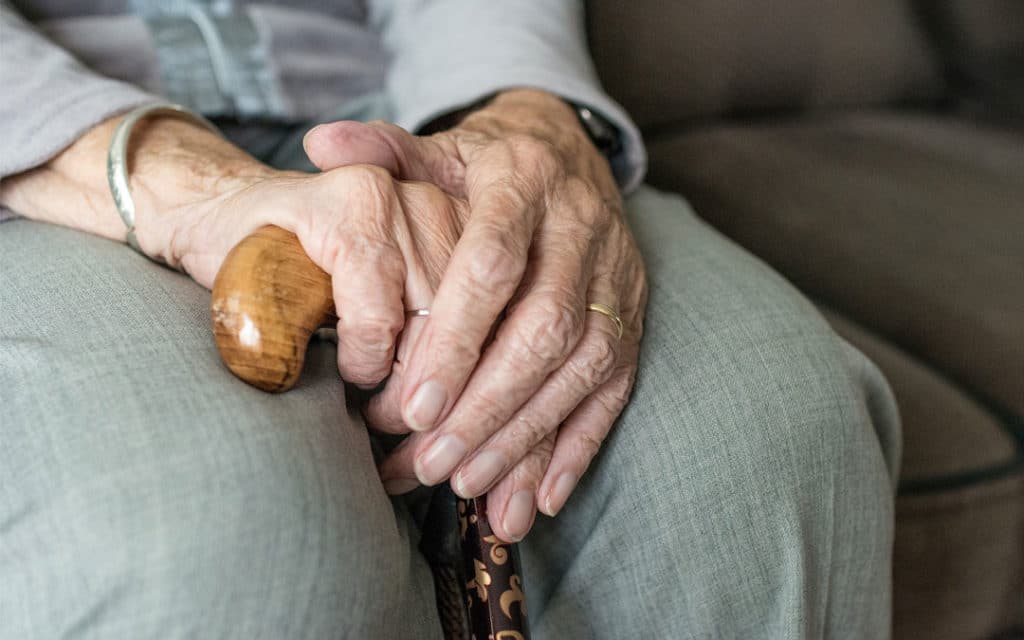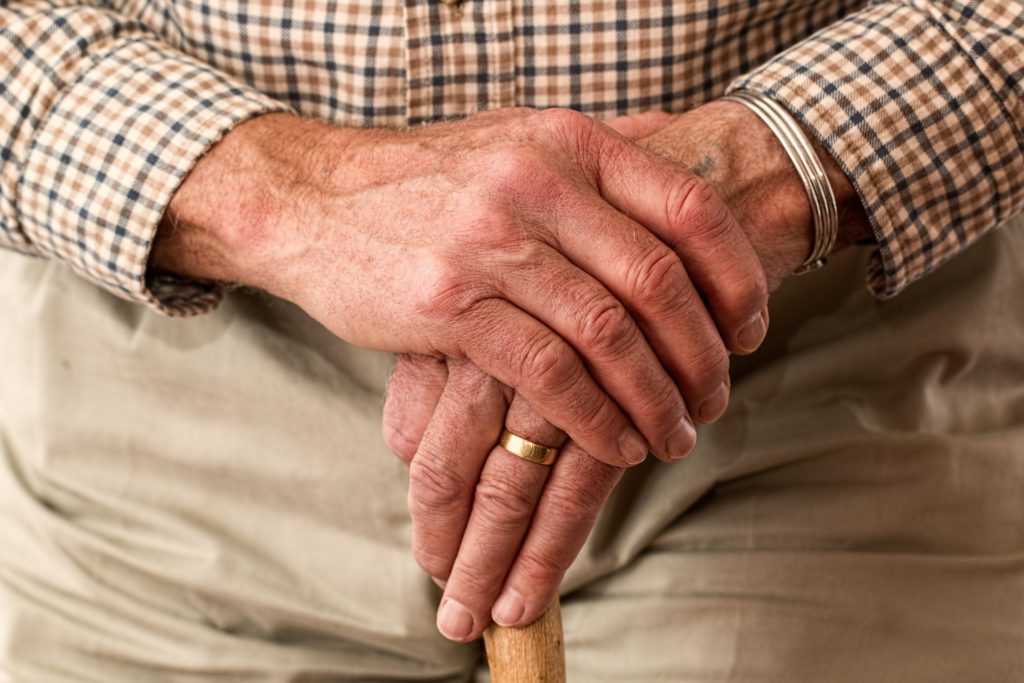By Marcus Fernandez
Nursing homes are places where loved ones can receive the level of care they need to live out their lives in comfort and safety. While the vast majority of Florida facilities live up to the standards you want for your parents, grandparents, or other family members, it’s essential to remain vigilant and proactive in ensuring their safety and well-being. When nursing home abuse occurs, you need to know how to recognize it and what to do about it.
An aging population has increased the demand for nursing homes in Florida. There are 683 nursing homes licensed by the state serving approximately 73,000 residents. According to statistics published by the Florida Health Care Association they could serve as many as 83,587 at full capacity. The Agency for Health Care Administration inspects each facility annually, and they are licensed by the state. They also investigate complaints made against facilities.
Like all elders, residents of nursing homes are at risk for abuse and neglect. Some residents may not report poor treatment by caregivers for fear that the abuse will escalate as a result. Also, they may not be able to clearly communicate about the problem due to cognitive difficulties or psychiatric conditions such as depression. They may be physically and emotionally unable to defend themselves against mistreatment. So, it’s often up to the families of residents to detect nursing home abuse and report it.
According to the Nursing Home Abuse Center, there was a 74 percent increase in Florida nursing home abuse reports from 2011 to 2015. The signs of abuse and neglect are sometimes obvious. Although sometimes the abuse is not immediately apparent. Abuse can occur for long periods if no one notices that it’s happening. You can help protect your loved one by watching for warning signs of abuse and neglect, and a lawyer can help you determine your next steps.
Rights Guaranteed to Each Resident of a Nursing Home
Florida law establishes fundamental rights and levels of care for patients living in nursing homes in the state. The law requires facilities to offer a safe, comfortable environment that is clean and homelike. Included among the basic and essential things nursing homes must make available to their residents are the following:
- Clean clothing and bedding
- Clean rooms and living quarters
- Access to clean water to drink
- Access to hot water
- Proper lighting and comfortable temperatures in living areas
- Installation and access to ramps, handrails, and other safety equipment
The law requires nursing homes to take steps to ensure residents receive proper medical care, including emergency care when required. Each resident must receive meals that meet nutritional standards, and they must have access to daily exercise and social activities.
The right of each patient to privacy when receiving medical treatment or when caring for his or her personal needs is guaranteed under Florida law. Residents have to be afforded the ability to close the door to their room. Staff must knock before entering in all instances other than emergencies. The only circumstance that could justify deviation from the policy is a resident’s medical condition.
Recognizing Forms of Nursing Home Abuse
The denial of any of the basic rights the law guarantees to nursing home residents could constitute nursing home abuse. Be aware of what to look out for when visiting a friend or relative living in a nursing home. Look for things indicating the person is being denied essential services or being abused.
Abuse can come in many different ways, but a few of the most common forms of abuse include the following:
Physical Abuse
Cuts, bruises, suspicious marks on the person’s face or body, or broken bones can be signs. This could be from punching, kicking, shoving or other types of physical contact from staff members or other residents. Other signs to watch out for are improper use of restraints, overmedication, and the denial of food and water.
Physical abuse is usually the easiest form of nursing home abuse to detect because the effects are visible. Some common signs of physical abuse to elders are:
- Bone breaks, fractures, or dislocations are not explained by a fall or other accident. Experienced medical professionals know how to distinguish injuries incurred in falls from those caused by battering and other forms of assault.
- Bruising and other marks on the skin that may indicate grabbing, hitting, or restraint.
- Broken eyeglasses. This can be a sign that the resident has been struck in the face.
- Exaggerated startle response. A resident may be on guard for another assault if a caregiver has physically harmed them.
- Social withdrawal. A resident may become isolated as a self-protective measure out of fear of again being physically hurt.
Emotional Abuse
Nursing home abuse does not have to be physical in nature to warrant taking action to stop it from continuing. Verbal and psychological abuse by staff and other residents can cause a person to become anxious and withdrawn and show signs of depression.
Emotional abuse is not as obvious as physical abuse, and its effects can be mistaken as common signs of aging. It may manifest in the resident’s behavior or the caregiver’s. If it goes undetected, emotional abuse can occur over a long period of time. Some signs of emotional abuse to look out for:
- Rocking, mumbling, sucking, and other repetitive behaviors. These are possible indicators that a resident feels the need to self-soothe as a result of being yelled at or otherwise verbally attacked.
- Fear of being left alone, especially with a particular caregiver. That caregiver may be mistreating the resident when others aren’t around to witness the abuse.
- Suspicious caregiver behavior, such as being demeaning or threatening to a resident. Clearly, such caregivers are not treating residents with dignity, respect, and empathy, and they may be taking out their frustrations with their jobs.
- Refusal to take medication. This may indicate that the resident has been terrorized to the point where he or she loses the will to follow treatment plans laid out by their physicians.
An attorney at Kinney, Fernandez, and Boire Law can help you decide on a course of action if you spot warning signs of physical or emotional abuse.
Sexual Abuse
Complaints from a resident of being the victim of nonconsensual sexual activity by people visiting, residing, or working at the facility is one sign of abuse, but there are other things you might notice indicating sexual abuse. Residents who are victims of sexual abuse may exhibit warning signs such as depression, withdrawal, or other personality changes. in the resident should be investigated to determine whether sexual assault or abuse is the cause.
Sexual abuse is often not as apparent as other types of physical abuse, but certain signs should raise an alarm.
- Bleeding from the vagina or rectum.
- STDs and other venereal infections.
- Bruises on the genital area or breasts.
- Blood, stains, or rips on undergarments.
Contact a Tampa attorney at KF&B Law if you see any of the red flags for sexual abuse in your loved one.
Financial Exploitation
Financial exploitation occurs when a resident is coerced or deceived into giving money away or changing legal documents. There is plenty of paper trail and records to prove this abuse. However, it may not be readily apparent unless a loved one is closely monitoring a resident’s finances.
- Spending that the resident is unable to explain or recall.
- ATM withdrawals when the resident is confined to a bed.
- Signing over power of attorney or changing the beneficiaries of life insurance policies or wills.
- Cash that goes missing from the senior’s room without explanation.
Neglect
A resident who appears to be dehydrated or malnourished could be suffering from neglect by the staff. Other signs to watch for are a dirty room, unsafe conditions in a resident’s room, dirty bed linens, bed sores and lesions, skin rashes, and other indications of a lack of proper care and attention to a person’s needs by the staff charged with caring for the residents.
Neglect is often general in nature, but the warnings can be numerous. According to the Florida Health Care Association, there are 691 licensed nursing homes in Florida, representing approximately 84,448 beds. That’s a lot of residents to look after. Be aware of these signs in order to detect nursing home abuse in the form of neglect, as it’s one of the most common.
- Appearing dirty or untidy. This is an indication that a resident is not receiving adequate personal care.
- Lack of cleanliness in the resident’s room. This is a sign that nursing home staff are not maintaining the living environment.
- Unexplained weight loss.
- Frequent dehydration
- Bed sores. This indicates that a resident is in bed too long.
- Caregivers’ failure to report illnesses and infections to the senior’s doctor and family.
- Inattentiveness or callous attitude on the part of caregivers.
- Caregivers’ failure to promptly change a resident’s soiled diapers and clothing.
You Cannot Delay Pursuing Damages in Court for Nursing Home Abuse Victims
A victim of abuse might have a claim for damages against the facility and the individuals responsible for it. You must contact an attorney as soon as you suspect a loved one might be the victim of nursing home abuse because state law imposes a two-year statute of limitations in which to file a lawsuit. The two years begin from the date of the incident, constituting the abuse. Although there are exceptions, claims for damages must be filed within the statute of limitations. Your best course of action is to speak to an attorney as soon after discovery of the abuse as possible.
A Tampa personal injury lawyer from Kinney, Fernandez and Boire can help you take action against caregivers who may be harming your loved one. We understand it can be deeply upsetting to contemplate abuse and neglect in the very place you’ve trusted to take care of your elderly relative, but you may be his or her only advocate.


